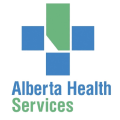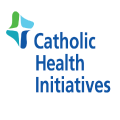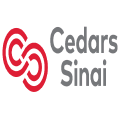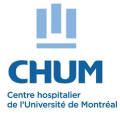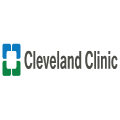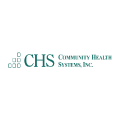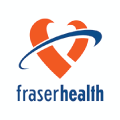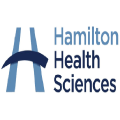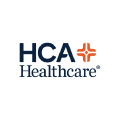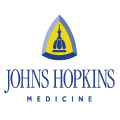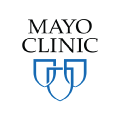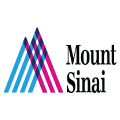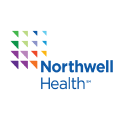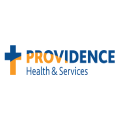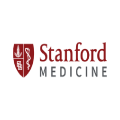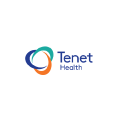Related Products & Systems on Other Pages on This Website
GAO RFID Medical Diagnostic Laboratories Asset Management System
People Tracking System for Education & Healthcare Institutions
Employee & Attendance Access Control System
BLE | Bluetooth Low Energy | BLE Gateways & Beacons – GAO RFID
RFID Readers | Buy RFID Readers | RFID Reader Writers – GAO RFID
RFID Tags | Buy RFID Tags – GAO RFID
High-Temperature Tolerant RFID Tags
People Tracking RFID Tags and Wristbands
Overview
The General Medical and Surgical Hospitals industry encompasses healthcare facilities that provide a wide range of medical services, including diagnostic, therapeutic, and surgical procedures. These hospitals are equipped with advanced medical technologies and staffed by skilled healthcare professionals, such as doctors, nurses, and support staff. They play a vital role in delivering comprehensive healthcare services to patients, diagnosing and treating various medical conditions, and performing surgeries when necessary.
GAO’s RFID, BLE, IoT, and drone technologies have helped its customers in general medical and surgical hospitals industry to improve their work processes, their operations and productivity by better management of their staff, materials and operational equipment such as X-ray machines, MRI scanners, CT scanners, scalpels, forceps, surgical scissors, clamps, suturing instruments, surgical drills, anesthesia machines, operating tables, surgical lights, surgical booms, surgical microscopes, cautery machines, vital sign monitors, pulse oximeters, blood pressure monitors, and intubation equipment.
Ranked as one of the top 10 global RFID suppliers, GAO RFID Inc. is based in New York City, U.S., and Toronto, Canada. GAO offers a comprehensive selection of UHF, HF (including NFC), and LF RFID (radio frequency identification) readers and tags, BLE (low energy Bluetooth) gateways and beacons, and various RFID and BLE systems such as people tracking, asset tracking, access control, parking control, fleet management, WIP (work in progress), and traceability. Such RFID and BLE products and systems, as well as their IoT and drone technologies, have been successfully deployed for general medical and surgical hospitals industry.
Applications & Benefits of GAO’s RFID, BLE, IoT & Drones for General Medical and Surgical Hospitals
 To satisfy its customers, GAO’s RFID or RFID Systems for medical and surgical hospitals industry are offered in 2 versions. One version is that its software is running on a local server that normally is on our client’s premise, and another version runs in the cloud. The cloud server could be GAO’s cloud server, client’s own cloud server or a cloud server from one of the leading cloud server providers such as Amazon Web Services (AWS), Microsoft Azure, Google Cloud, IBM Cloud (formerly SoftLayer), Oracle Cloud, RedHat, Heroku, Digital Ocean, CloudFlare, Linode and Rackspace. The above illustrates GAO system for medical and surgical hospitals industry with its software running on a local server.
To satisfy its customers, GAO’s RFID or RFID Systems for medical and surgical hospitals industry are offered in 2 versions. One version is that its software is running on a local server that normally is on our client’s premise, and another version runs in the cloud. The cloud server could be GAO’s cloud server, client’s own cloud server or a cloud server from one of the leading cloud server providers such as Amazon Web Services (AWS), Microsoft Azure, Google Cloud, IBM Cloud (formerly SoftLayer), Oracle Cloud, RedHat, Heroku, Digital Ocean, CloudFlare, Linode and Rackspace. The above illustrates GAO system for medical and surgical hospitals industry with its software running on a local server.
The above illustrates the GAO system general medical and surgical hospitals industry with its software running in the cloud.
GAO’s RFID and BLE technologies, consisting of RFID readers, RFID tags, BLE gateways, BLE beacons, software, cloud services and their systems, have the following applications in general medical and surgical hospitals industry:
- Asset Tracking: GAO’s RFID tags can be attached to medical equipment, such as wheelchairs, infusion pumps, and surgical instruments, allowing hospitals to monitor their location and ensure their availability when needed.
- Inventory Management: Our RFID can help hospitals track and manage their inventory of medical supplies, medications, and other consumables, enabling more efficient stock management and reducing the risk of stockouts.
- Patient Tracking: GAO’s RFID wristbands or tags can be used to track patients’ movements within the hospital, ensuring they receive the right care and reducing the risk of errors.
- Access Control and Security: GAO’s RFID technology can be employed to control access to restricted areas, such as operating rooms, laboratories, and medication storage areas, enhancing hospital security and patient safety.
- Patient Identification: Our RFID wristbands or cards can be used to accurately identify patients, reducing the risk of medical errors and improving patient care.
- Temperature Monitoring: GAO’s RFID temperature sensors can be utilized to monitor the temperature of temperature-sensitive medical supplies and medications, ensuring their integrity and safety.
- Waste Management: GAO’s RFID tags can be integrated into waste bins to track the disposal of hazardous materials and medical waste, streamlining waste management processes.
- Patient Flow Management: Our RFID technology can assist in managing patient flow and wait times, optimizing the efficiency of outpatient services and emergency departments.
- Laboratory Sample Tracking: GAO’s RFID tags can be used to track laboratory samples, improving traceability and reducing the risk of sample mix-ups.
- Patient Monitoring: Our RFID-enabled monitoring systems can transmit patient data in real-time, facilitating continuous monitoring and improving patient outcomes.
GAO’s drone technologies find the following applications in general medical and surgical hospitals industry:
- Medical Supply Delivery: GAO’s drones can be used to transport medical supplies, medications, and laboratory samples quickly and efficiently between hospitals, clinics, and remote healthcare facilities, especially in areas with challenging terrain or during emergencies.
- Emergency Response and Disaster Relief: Our drones equipped with medical equipment and communication systems can assist in disaster zones and remote areas, providing immediate medical aid and assessment during emergencies.
- Aerial Imaging and Mapping: Our drones with high-resolution cameras can be used for aerial imaging and mapping of medical facilities, helping hospitals in facility planning, infrastructure monitoring, and disaster preparedness.
- Telemedicine Support: GAO’s drones equipped with telemedicine technology can establish real-time communication between doctors and patients in remote locations, allowing for remote consultations and medical advice.
- Surveillance and Security: GAO’s drones can be employed to enhance hospital security by providing aerial surveillance and monitoring of hospital premises and surrounding areas.
- Search and Rescue Operations: Our drones can aid in search and rescue operations, helping to locate missing or injured individuals in challenging environments.
- Medical Waste Disposal: Our drones can assist in transporting medical waste from remote areas or disaster zones to designated disposal sites, ensuring safe waste management.
- Public Health Initiatives: GAO’s drones can be used to distribute public health information, conduct health campaigns, and spray insecticides to control vector-borne diseases.
- Monitoring of Infectious Diseases: GAO’s drones equipped with sensors can monitor environmental conditions and collect data to track the spread of infectious diseases.
- Training and Simulation: Our drones can be used for medical education and training purposes, simulating medical scenarios and emergency situations for healthcare professionals.
GAO’s IoT technologies, consisting of IoT sensors, sensors networks and systems, find the following applications in the general medical and surgical hospitals industry:
- Remote Patient Monitoring: Our IoT sensors can be used to monitor patients’ vital signs, such as heart rate, blood pressure, and temperature, remotely. This enables healthcare providers to keep track of patients’ health conditions outside of the hospital setting and respond promptly to any abnormalities.
- Smart Medical Devices: GAO’s IoT-enabled medical devices, such as smart infusion pumps and connected wearable devices, can transmit real-time data to healthcare professionals, ensuring accurate dosage administration and continuous monitoring.
- Asset Tracking and Management: GAO’s IoT sensors can be utilized to track and manage medical equipment and assets within the hospital, streamlining inventory control and maintenance schedules.
- Environmental Monitoring: Our IoT sensors can monitor environmental conditions in healthcare facilities, including temperature, humidity, and air quality, ensuring optimal conditions for patient comfort and medical equipment performance.
- Predictive Maintenance: Our IoT systems can enable predictive maintenance of medical equipment by monitoring equipment performance and detecting potential issues early, reducing downtime and improving equipment longevity.
- Medication Management: GAO’s IoT technologies can assist in medication management by providing reminders and tracking adherence to medication schedules, especially for elderly or chronic patients.
- Fall Detection and Prevention: GAO’s IoT sensors can be used to detect falls in hospital rooms or patient care areas, triggering alerts to staff for immediate response and fall prevention strategies.
- Infection Control: Our IoT systems can monitor hand hygiene compliance and track the movement of staff and patients, aiding in infection control and reducing the risk of hospital-acquired infections.
- Occupancy and Space Management: Our IoT sensors can monitor room occupancy, helping hospitals optimize bed utilization and manage patient flow efficiently.
- Ambient-Assisted Living: GAO’s IoT technologies can be integrated into assisted living facilities to provide personalized care for elderly or disabled patients, promoting independent living and safety.
- Real-Time Location Services (RTLS): GAO’s IoT-based RTLS can help hospital staff quickly locate medical equipment, patients, and staff members, facilitating efficient responses and workflows.
GAO Helps Customers Comply with Standards, Mandates & Regulations of General Medical and Surgical Hospitals
GAO RFID Inc. has helped many companies in medical and surgical hospitals industry to deploy RFID, BLE, IoT and drone systems and to ensure such deployments complying with the applicable industry standards, mandates and government regulations:
RFID, BLE, IoT, & Drone Standards & Mandates
- EPC (Electronic Product Code)
- FDA UDI (Unique Device Identification) Rule
- HIPAA (Health Insurance Portability and Accountability Act
- IEEE 11073
- IEC 60601
- FCC Part 15
- AAMI TIR57
- ANSI 11137
- ASTM F3208
U.S. Government Regulations
- Occupational Safety and Health Administration (OSHA) Regulations
- The Joint Commission (TJC) Accreditation Standards
- American with Disabilities Act (ADA)
Canadian Government Regulations
- Canadian Standards Association (CSA) Standards
- Food and Drug Regulations
- Health and Safety Regulations
GAO’s Software Provides API
GAO’s RFID and BLE software offers a free trial for both the server-based and cloud versions, and offers an API to the important systems in general medical and surgical hospitals industry:
Personnel Management:
- Recruitment and Selection
- Training and Development
- Performance Evaluation and Feedback
- Employee Engagement and Retention
Equipment Management:
- Equipment Inventory and Tracking
- Preventive Maintenance Scheduling
- Equipment Calibration and Testing
- Equipment Replacement and Upgrades
Access Control:
- Secure Entry and Exit Points
- Visitor Management System
- Access Control for Restricted Areas
- Biometric Authentication
Warehouse Management:
- Inventory Control and Tracking
- Stock Replenishment and Ordering
- Shelf Life and Expiry Date Management
- Space Optimization and Layout Planning
Supply Chain Management:
- Vendor Selection and Management
- Procurement and Purchase Order Management
- Demand Forecasting and Inventory Planning
- Distribution and Logistics Optimization
Other Applications:
- Quality Assurance and Compliance Management
- Patient Safety and Risk Management
- Health Information Management and Electronic Medical Records
- Financial Management and Revenue Cycle Management
GAO has enabled its customers to make use of some of the leading software and cloud services in medical and surgical hospitals industry. Below are some of popular software and cloud services in medical and surgical hospitals industry.
- Cerner Corporation
- Allscripts Healthcare Solutions, Inc.
- Meditech
- McKesson Corporation
- Siemens Healthineers
- Athenahealth, Inc.
- GE Healthcare
- NextGen Healthcare
- eClinicalWorks
- Philips Healthcare
- EpicCare
- Carestream Health
GAO has worked with some of the leading technology companies in general medical and surgical hospitals industry to provide integrated RFID, BLE, IoT, and drone solutions to customers. Here are some of the technology leaders in general medical and surgical hospitals industry:
- Cisco Systems, Inc.
- Microsoft Corporation
- IBM Corporation
- Oracle Corporation
- Dell Technologies
- Hewlett Packard Enterprise (HPE)
- Intel Corporation
- VMware, Inc.
- Citrix Systems, Inc.
- Change HealthcareNuance Communications, Inc.
- Zebra Technologies Corporation
Case Studies of RFID Applications
Below are some RFID application cases in general medical and surgical hospitals industry:
RFID technology is used to track and manage medical equipment, such as infusion pumps, wheelchairs, and portable devices, improving inventory management, reducing loss or misplacement, and optimizing equipment utilization.
RFID wristbands or tags can be used to monitor and track patients within medical and surgical hospitals. This helps enhance patient safety, prevent errors, and improve workflow efficiency by providing real-time location information.
RFID tags can be attached to medication containers or packaging to ensure accurate tracking, authentication, and inventory management of medications within the hospital. This helps prevent medication errors and enhances medication administration processes.
In medical hospitals in the USA, UFH RFID technology was implemented to improve medication administration processes. Each medication bottle was equipped with an RFID tag, and nurses were provided with handheld RFID readers.
A surgical hospital in Canada utilized UFH RFID technology to enhance patient monitoring and safety. Patients were provided with RFID-enabled wristbands, and RFID readers were strategically placed throughout the hospital.
Many applications of RFID by GAO can be found here:
Case Studies of IoT Applications
Below are some IoT application cases in general medical and surgical hospitals industry.
A hospital in the USA implements IoT devices to continuously monitor patients’ vital signs, such as heart rate, blood pressure, and oxygen levels. These devices transmit real-time data to nurses and doctors, allowing for proactive intervention and early detection of any potential health issues.
An American hospital adopts IoT-based asset tracking solutions to monitor and manage medical equipment, such as infusion pumps, wheelchairs, and defibrillators. The IoT system provides real-time location data, helping hospital staff locate and maintain equipment efficiently.
A Canadian hospital employs IoT-enabled wristbands or tags for patients, enabling staff to track their movement throughout the hospital. This data helps optimize workflow, reduce wait times, and enhance patient satisfaction.
A hospital in Canada integrates IoT sensors to monitor environmental conditions, including temperature, humidity, and air quality. The system ensures a safe and comfortable environment for patients and staff, reducing the risk of healthcare-associated infections.
Case Studies of Drone Applications
Below are some drone application cases in general medical and surgical hospitals industry.
A hospital in the USA partners with drone service providers to deliver medical supplies, such as blood products, medications, or defibrillators, to accident sites or remote areas where access is challenging. Drones enable rapid response and potentially life-saving interventions before ground-based medical teams arrive.
In the USA, hospitals collaborate with drone operators to transport donated organs from one facility to another for transplant surgeries. Drones can significantly reduce transportation time, ensuring organs remain viable and increasing the success rate of transplant procedures.
Canadian hospitals employ drones to conduct remote medical consultations in rural or isolated regions. Drones equipped with cameras and medical devices enable healthcare professionals to assess patients and provide medical advice from a distance.
Hospitals in Canada explore drone applications for safe and efficient medical waste disposal. Drones equipped with sterilization or waste management systems can transport and process medical waste in compliance with environmental regulations.
GAO RFID Systems & Hardware for General Medical and Surgical Hospitals Industry
GAO RFID Inc. offers the largest selection of BLE gateways, BLE beacons, RFID readers, tags, antenna, printers, and integrated RFID systems for various industries, including general medical and surgical hospitals industry.
BLE (Bluetooth Low Energy)
GAO offers advanced BLE gateways:
as well as versatile beacons with such important functions as temperature, humility, vibration, and panic button:
GAO’s BLE technology is suitable for many industries, including general medical and surgical hospitals industry.
UHF (Ultra High Frequency) RFID
GAO offers the largest selection of UHF RFID readers for various industries, including general medical and surgical hospitals industry:
GAO RFID offers the widest choice of UHF RFID tags, labels, badges, wristbands for various industries, including general medical and surgical hospitals industry:
and an array of antennas to address different applications:
HF (High Frequency), NFC (Near Field Communications) and LF (Low Frequency) RFID
GAO offers the largest selection of HF, NFC, and LF RFID readers for various industries, including general medical and surgical hospitals industry:
HF, NFC and LF RFID tags, labels, badges, wristbands for various industries, including general medical and surgical hospitals industry:
and antennas:
GAO also offers RFID printers:
Digital I/O adapters:
and relay controllers:
For embedded applications, GAO offers UHF, HF and LF RFID reader modules:
- Find Your 860-960 MHz RFID Module
- Find Your 13.56 MHz High Frequency RFID Module
- Find Your 125 kHz RFID Reader Modules
In collaboration with its sister company GAO Tek Inc, a wide selection of high quality drones are offered:
The RFID systems by GAO are highly popular for clients in general medical and surgical hospitals industry:
Physical asset or operational equipment tracking system:
Assets that can be effectively tracked using GAO’s technologies include Hospital Beds Patient Monitors Ventilators Defibrillators, Infusion Pumps, Surgical Instruments, Anesthesia Machines Diagnostic, Imaging Equipment, Endoscopy Equipment Electrocardiogram (ECG), Machines Laser Systems, Dialysis Machines Laparoscopic, Equipment Operating Room Lights and Tables Laboratory, Equipment, Wound Care Devices, Orthopedic Implants and Instruments Patient Lifts and Transfer, Equipment Cryotherapy, Machines Hyperbaric Chambers.
People or workers tracking system:
Physical asset or operational equipment tracking system:
Personnel or people access control system:
Parking or vehicle control system:
Furthermore, GAO provides the customization of RFID tags, RFID readers, BLE beacons and BLE gateways, IoT, drones, and systems and consulting services for General medical and surgical hospitals industry and for various industries in all metropolitans in the U.S. and Canada:
GAO Has Served General Medical and Surgical Hospitals Extensively
GAO RFID Inc. and its sister company GAO Tek Inc. together offer a wide choice of RFID, BLE, IoT, drone, testing and measurement devices, and network products.
GAO’s products and technologies have helped its customers in general medical and surgical hospitals industry Industry to achieve success in RFID (Radio-Frequency Identification), BLE (Bluetooth Low Energy), IoT (Internet of Things), drones in healthcare, testing and measurement devices, network products for healthcare, telemedicine, AI-driven healthcare solutions, wearable health technology, remote patient monitoring, big data analytics, and blockchain in healthcare.
GAO RFID Inc. has deployed RFID, BLE and IoT projects for many companies in general medical and surgical hospitals industry, including many in its various divisions such as:
- Cardiology: Hospitals specializing in the diagnosis, treatment, and care of heart-related conditions and diseases.
- Orthopedics: Hospitals that focus on the diagnosis, treatment, and surgical procedures related to musculoskeletal conditions, including bones, joints, ligaments, and tendons.
- Neurology: Hospitals specializing in the diagnosis, treatment, and care of conditions affecting the brain, spinal cord, and nervous system.
- Oncology: Hospitals that provide comprehensive cancer care, including diagnosis, treatment, and supportive services for patients with various types of cancers.
- Obstetrics and Gynecology: Hospitals that focus on the care and treatment of women during pregnancy, childbirth, and reproductive health.
- Pediatrics: Hospitals dedicated to the medical care and treatment of infants, children, and adolescents, including specialized pediatric surgeries and services.
- Emergency Medicine: Hospitals with dedicated emergency departments that provide immediate medical care for acute illnesses, injuries, and medical emergencies.
- Geriatrics: Hospitals specializing in the care and treatment of elderly patients, addressing their unique healthcare needs and age-related conditions.
- Psychiatry: Hospitals that provide comprehensive mental health services, including evaluation, diagnosis, and treatment of psychiatric disorders.
- Rehabilitation: Hospitals offering specialized rehabilitation services, including physical therapy, occupational therapy, and speech therapy, to help patients recover and regain functionality after illness, injury, or surgery.
GAO’s technologies enable its customers in general medical and surgical hospitals industry to effectively track their workforces such as doctors, nurses, surgeons, physicians, specialists, technicians, administrators, orderlies, medical assistants, lab technicians, pharmacists, radiologists, anesthesiologists, physical therapists, and occupational therapists and effectively track operational assets such as MRI machines, X-ray machines, ultrasound machines, CT scanners, infusion pumps, ventilators, defibrillators, surgical instruments, anesthesia machines, patient monitors, blood pressure monitors, ECG machines, laboratory analyzers, sterilization equipment, and wheelchairs.
Here are some of the leading companies in the general medical and surgical hospitals industry:
- Mayo Clinic: Renowned for its integrated medical practice and high-quality patient care, the Mayo Clinic is a nonprofit medical center with campuses in multiple states, known for its expertise in various medical specialties.
- Cleveland Clinic: A world-famous academic medical center, the Cleveland Clinic is recognized for its cutting-edge research, advanced treatments, and a broad range of medical services.
- Johns Hopkins Hospital: A top-ranking hospital and academic medical center, Johns Hopkins Hospital is renowned for its research, medical education, and patient care across diverse medical fields.
- Massachusetts General Hospital: An academic medical center affiliated with Harvard Medical School, MGH is known for its exceptional patient care, innovative research, and contributions to medical advancements.
- UCLA Medical Center: Part of the University of California, Los Angeles, this hospital is highly regarded for its comprehensive healthcare services and leading medical research.
- NewYork-Presbyterian Hospital: A prominent teaching hospital in New York City, NewYork-Presbyterian is recognized for its high-quality patient care and advanced medical treatments.
- Stanford Health Care: Affiliated with Stanford University School of Medicine, this hospital excels in research, innovation, and specialized medical services.
- Mount Sinai Hospital: A respected medical institution in New York City, Mount Sinai is known for its clinical excellence and commitment to advancing healthcare.
- Cedars-Sinai Medical Center: Located in Los Angeles, Cedars-Sinai is renowned for its expertise in multiple medical specialties and its commitment to patient care.
- Duke University Hospital: Affiliated with Duke University School of Medicine, this hospital is a leader in medical research, education, and patient care.
- University of Michigan Hospitals-Michigan Medicine: Part of the University of Michigan, this hospital is known for its comprehensive medical services and research initiatives.
- Vanderbilt University Medical Center: Associated with Vanderbilt University School of Medicine, this hospital is recognized for its specialized care and research programs.
- Brigham and Women’s Hospital: Affiliated with Harvard Medical School, Brigham and Women’s Hospital is a major teaching hospital known for its clinical and research excellence.
- Northwestern Memorial Hospital: A leading academic medical center in Chicago, Northwestern Memorial is acclaimed for its exceptional patient care and research contributions.
- Hospital of the University of Pennsylvania: Part of the University of Pennsylvania Health System, this hospital is known for its advanced medical services and research breakthroughs.
- Barnes-Jewish Hospital/Washington University: Located in St. Louis, this hospital is associated with Washington University School of Medicine and offers high-quality patient care and research.
- Houston Methodist Hospital: Known for its comprehensive medical services and patient care, Houston Methodist is a leading healthcare provider in Texas.
- NYU Langone Health: A prominent medical center in New York City, NYU Langone Health is recognized for its specialized care and research contributions.
- Emory University Hospital: Part of Emory Healthcare, this hospital is known for its specialized care, research advancements, and medical education programs.
- UCSF Medical Center: Affiliated with the University of California, San Francisco, this hospital is a pioneer in research, clinical excellence, and patient-centered care.


